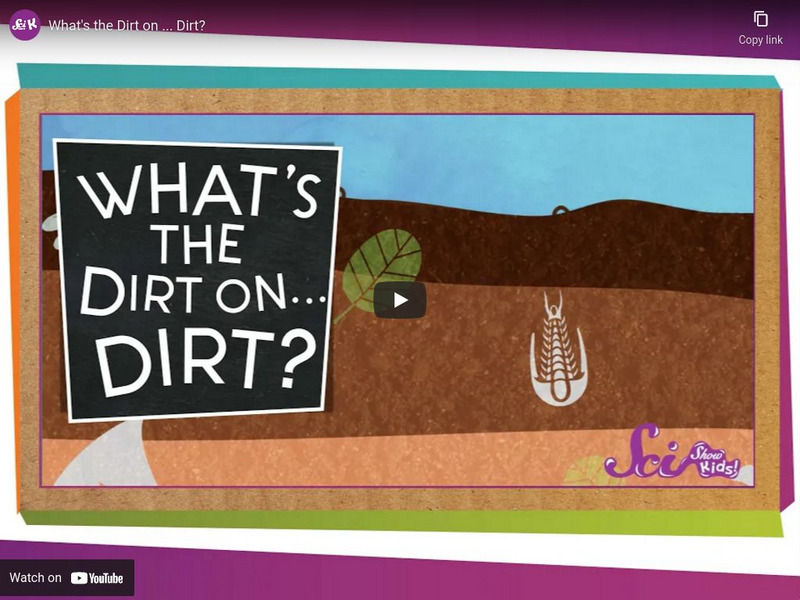JJ Medicine
Sporotrichosis (Rose Gardener’s Disease): Causes, Risks, Types, Symptoms, Diagnosis, Treatment
Sporotrichosis (Rose Gardener’s Disease): Causes, Risk Factors, Types, Symptoms, Diagnosis and Treatment Sporotrichosis (also known as Rose Gardener’s Disease) is a fungal infection caused by dimorphic fungi of the genus Sporothrix. It...
msvgo
Water pollution
It explains causes for water pollution, international standards for drinking water, biomagnification, eutrophication.
Curated Video
The Carbon The Carbon Cycle: Understanding How Essential Elements are Recycled and Reused
In this lecture presentation, the focus is on the carbon cycle, which is an essential element continuously recycled and reused. The video gives examples of different cycles such as oxygen, nitrogen, and water before diving into the...
msvgo
An Introduction to Garbage
It talks about waste/garbage, identifies solid and liquid wastes and classifies them as biodegradable and non-biodegradable.
Curated Video
Understanding Communities and Key Terms
The video is a lecture presentation on communities and the relationships between organisms within them. It uses an example of a community that includes an owl, a snake, a shrew, a frog, a beetle, grasshopper, and grass living in a wooded...
Science360
What if Waste Water Could be Turned into Energy?
All of us use water and in the process, a lot of it goes to waste. Whether it goes down drains, sewers or toilets, much of it ends up at a wastewater treatment plant where it undergoes rigorous cleaning before it flows back to the...
Curated Video
Do bones decompose? How long does it take for bones to decompose?
Ever wonder why bones can survive hundreds of years without decomposing? This is due to the unique composition of bone. Bone is primarily composed of a very stable protein called collagen and the mineral calcium. The association between...
msvgo
Conventional Source of Energy: Fossil Fuels
It explains fossil fuels, namely coal, petroleum and natural gas. It also talks about the choice of good fuel.
msvgo
Decomposition
Process and steps of decomposition in an ecosystem. Advantages and factors affecting decomposition.
Curated Video
Communities: Relationships and Key Terms
The video is a lecture presentation on communities and the relationships between organisms in an ecosystem. The narrator uses the example of a community of organisms in a wooded area and discusses the feeding relationships between them....
Science360
Bacteria - Energy Producers of the Future?
All of us use water and in the process, a lot of it goes to waste. Whether it goes down drains, sewers or toilets, much of it ends up at a wastewater treatment plant where it undergoes rigorous cleaning before it flows back to the...
Curated Video
Potable Water and Wastewater Treatment: Managing Our Water Resources
This video is a lecture presentation on potable water and wastewater treatment. The presenter discusses the properties and uses of water, the process of obtaining potable water from various sources, such as rainwater and sea water, and...
Science360
EcoVolt generates energy from wastewater
Spun out of MIT in 2006, Cambrian Innovation is commercializing a portfolio of environmental solutions based on newly discovered electrically active microbes. By harnessing the power of bio-electricity and advances in electrochemistry,...
Curated Video
Pyramids of Biomass: Understanding Relative Amounts of Organic Matter in Food Chains
This video is a lecture presentation on pyramids of biomass. The presenter explains the concept of biomass and trophic levels in a food chain. The video provides a graphical representation of the relative amounts of organic matter found...
msvgo
Microbes in Sewage Treatment
It describes the role of microbes in sewage treatment plant. It also explains the steps of waste water treatment
Curated Video
Trophic Levels and Biomass in Ecology
The video discusses the important ecological concepts of trophic levels and biomass. The video provides an example of a food chain, from grass plants as producers to apex predators that have no predators of their own. The video explains...
Science360
Microbes! - Green Revolution
Can bugs save the planet? Join host Lisa Van Pay, PhD (aka a scientist) as she explores exciting alternative energy research taking place around the country. For more Green Revolution, go to:...
Journey to the Microcosmos
Microorganisms Are Cleaning the Water You Drink
Microbes are used for everything from baking to brewing, but wastewater treatment is where they do some of their most important work.
Curated Video
Soil: The Skin of the Earth
Soil is a vital natural resource that supports life on Earth. It is a mixture of minerals, organic matter, gases, liquids, and organisms. Soil plays a crucial role in providing nutrients and moisture for plant growth, purifying water,...
SciShow
Sci Show Kids: What's the Dirt on Dirt
Investigate dirt and why just about everything on the planet depends on it! This video explores soil's properties. Learn how soil is a mixture of minerals, water, air, and organic matter. [3:43]

